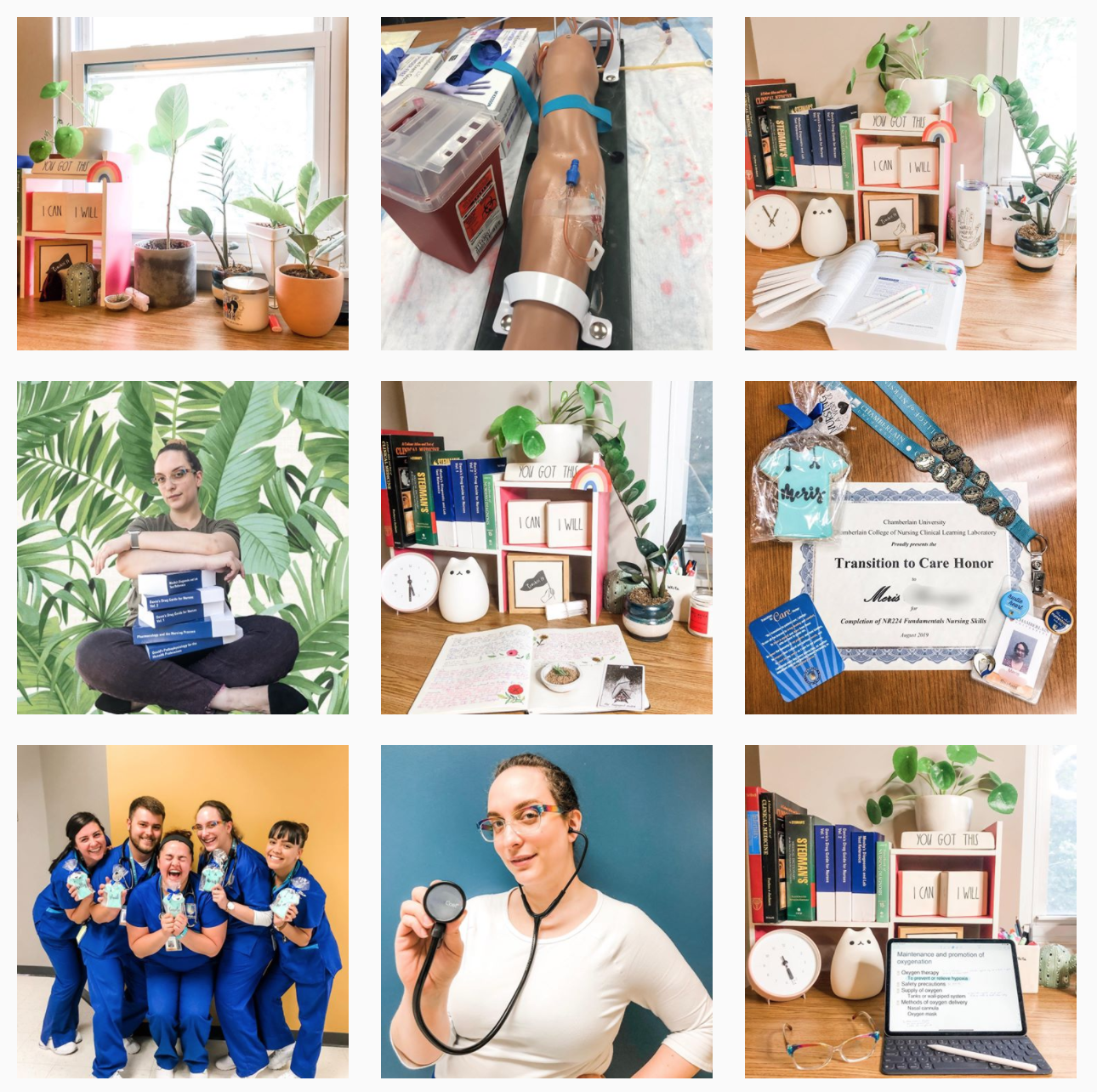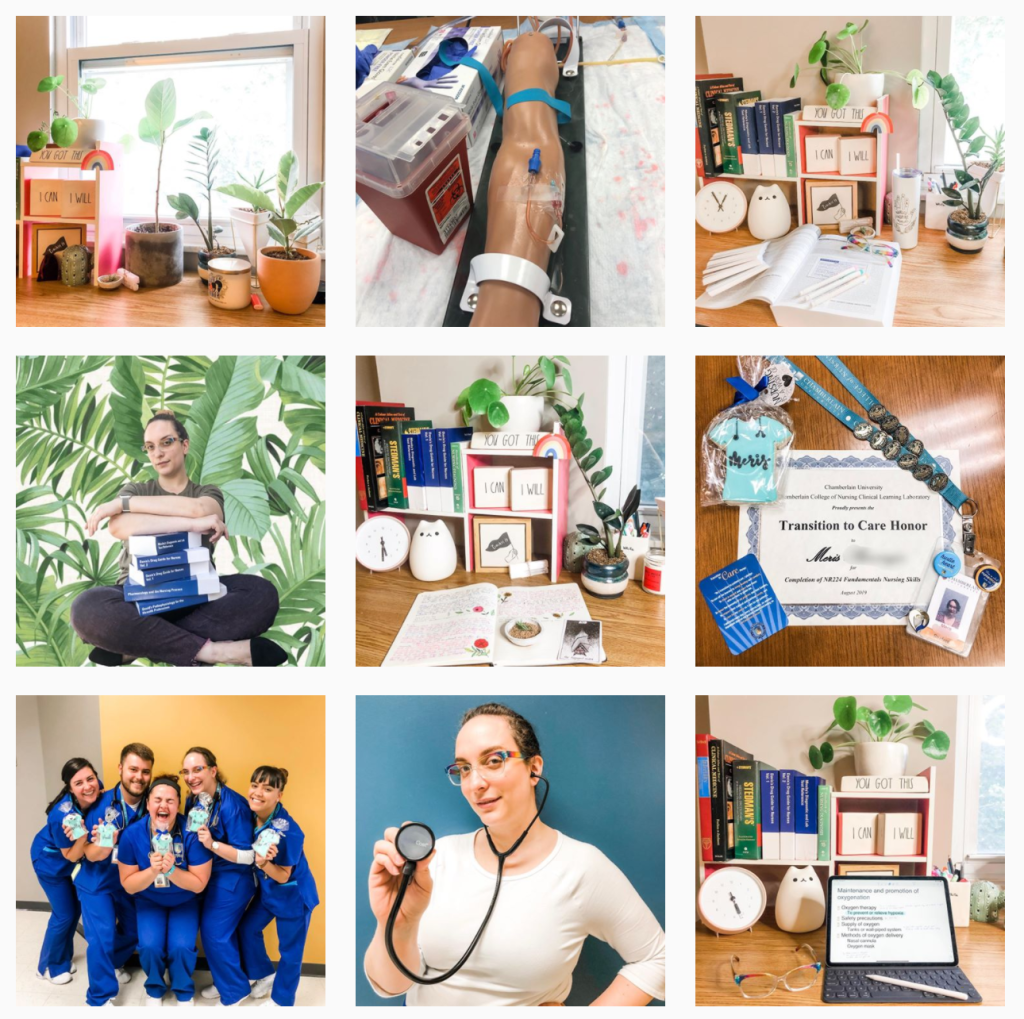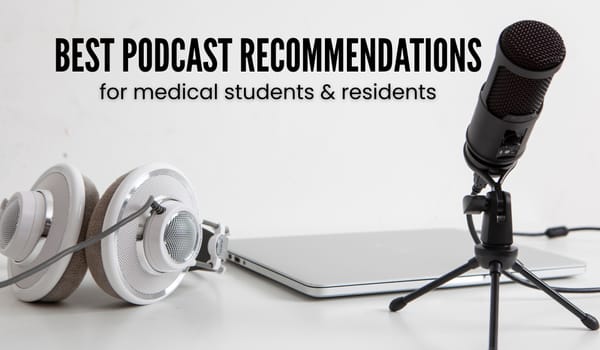What Nursing Students Wished Medical Students Knew (Guest Author)
Although in a little while I’ll be working side-by-side with nurses, I’ve come to realize that I…

Although in a little while I’ll be working side-by-side with nurses, I’ve come to realize that I know nothing about their journey, be it academic, personal or professional. Luckily, I had the chance to get to know some amazing nursing students on Instagram, and that’s how the idea for this blog post was born.
I am joined by Meris, who runs @bsn_to_be on Instagram and blogs on SeizureComaDeath.com. I don’t even remember how we met (in the digital sense of the word, of course), but I am time and time again impressed at how she handles nursing school, motherhood and life. I am so honored that she agreed to spend her precious free time answering my questions about nursing, and I hope that you, too, will learn from her words of wisdom. So, enough from me and let’s get to the meat of this article!

Hi everyone,
If you don’t know me, my name is Meris, and I am currently a senior registered nursing student finishing up the last year of my BSN degree! I am currently studying pediatrics and I hope to sit for the NCLEX in the summer of 2021 and go on to earn my doctorate as a Certified Nurse Midwife. When Alexa approached me with this idea of writing a post about what nursing students wished medical students knew, I was immediately so excited.
I am incredibly passionate about the field of nursing and medicine in general, and I grew up with a physician for a father, so I am aware of a lot of the misconceptions doctors and medical students may have about nurses, and I want to do my part to dispel any of these so we can best work together to care for our patients.
To begin: I went to nursing school on purpose.
I didn’t go to nursing school because I couldn’t be a doctor. I went to nursing school because I wanted to be a nurse. Nurses are not failed physicians, or people who just couldn’t hack it in med school. Nurses are people who may be interested in a different type of patient care than being a physician provides. I had every opportunity in the world to pursue a career as a physician, but I chose not to because it just isn’t the part of medicine that interests me!
We are interested in caring for the whole person, not just the disease process.
I am incredibly interested in the disease process and get great joy from studying and identifying manifestations of a given disease. But I am also interested in the holistic care of a patient. I am interested in being there to give support over the length of a shift, several days, or even long term care, versus the few brief interactions I would be able to have if I were a physician. I’m interested in the ways in which I can support my patient’s care and recovery in emotional ways, or by collaborating with other disciplines to help my patient afford their medicines or find health insurance. It has been my experience that physicians are focused on cure and treatments, which is invaluable and so crucial to a patient’s care, but nurses remain focused on health, compassion, and the protection of a patient’s rights. This is not to say physicians aren’t also interested in these, but that these are the core of the nursing profession. It is my job to be an advocate for my patient to protect their rights to autonomy, veracity, justice, etc. It is my job to ensure fair and equitable treatment for my patients and highlight any injustices I may see. It is my job to care for the patient and not just the disease process, and that is what gives me the greatest joy. The disease process is so cool, but I think considering it in the context of a patient’s entire life is really incredible.
On that same note, I want to point out that nurses are not “doctor helpers.”
In fact, we aren’t “under” physicians at all. We are employed by our hospital, facility, or other entities—physicians are not our bosses or our superiors. We are a part of an entirely separate discipline working collaboratively to care for our patients. If a nurse makes a mistake, he or she will be beholden to their chain of command and their employers. Yes, we work together, and nurses carry out many physician orders, however, nurses are not “less than” or “beneath” a physician. Please don’t treat us like we are inferior to you, because we aren’t!
Student nurses can benefit from your clinical knowledge, too!
If you’re a medical student, I’m sure you remember what it felt like the first time you were in a room with no idea what was going on, or what it felt like when you asked an obvious question or made a mistake with your answer. It’s embarrassing all on its own, but what is more upsetting is being completely overlooked or treated like you’re invisible. When a student nurse is present, please take the time to educate them the way you would a medical student! We want to learn new things, be involved, and get that experience that will impact the care we provide in the future, too, but very often we are overlooked by physicians and medical students. If a nursing student asks a question, please answer it! We aren’t trying to be annoying or in the way, we just want to learn like everyone else.
When a nurse tells you something is wrong, listen.
We are with these patients for hours and hours, and may even see them over multiple different shifts. We get to know our patients in a way that is different from the way a physician does, and because of that, we can often see subtle changes in our patient’s status that may speak to a bigger underlying or developing issue. So when your patient’s nurse calls you at 3 in the morning and says something isn’t right, please listen. Please take these concerns seriously, and remind yourself that this nurse has been with this patient for probably at least 10 hours by now and could be picking up on a big indication of something going wrong.
Remember that nurses—and even nursing students—don’t just wipe butts,
but you shouldn’t be denigrating us for that, either. Nurses are critical thinking machines who have been taught to assess the patient holistically, analyze that data, pick up on trends in a patient’s status, and prioritize patient care. But you know what? Sometimes we do wipe butts. Sometimes we perform the most basic care for our patients like helping them to the bathroom, changing an adult brief, bathing them, or even just holding a hand and helping a patient through a tough time. These are all incredible attributes of nurses, not something for which we should be ridiculed. Did I go to school to learn how to wipe butts? No, but I will gladly help my patients care for themselves if they are not able to, and I think that’s pretty awesome!
I guess in general, what I want future doctors to know is that nurses rock. They’ll save your butt so many times, and usually, you won’t even notice it. They’ll hold your patient’s hand, brush the hair out of their faces, make all the lines and tubes more organized and comfortable for the patient. They’ll consider the pharmacoeconomics of a given situation, not just the pharmacokinetics. They’ll be the ones figuring out who’s going to care for the patient upon discharge, or what barriers could exist to prevent the patient from reaching optimal compliance with the treatment team. Most of all, I just don’t want you to think of nurses as wannabe doctors. I want to be a lot of things, but “doctor” isn’t on that list for me—being a nurse is, and that’s okay.
What’s in a nursing degree?
Alexa also asked me to talk a little bit about what a degree in nursing entails! The truth is that it varies wildly in the United States, at least, because there are different types of degree programs! There are associate’s degrees in nursing, which typically take 2 years, and there are bachelor’s degrees in nursing which take 4 years on average. Both degrees give you the right to take the NCLEX (National Council Licensure Examination), and successfully sitting for the NCLEX is what makes you a registered nurse.
It’s also important to note that there are different types of nurses (licensed practical or vocational nurses and registered nurses, for instance), and there are many ways a nurse can choose to further that education as well. There are nurses with master’s degrees in epidemiology, nursing education, administration, and more. There are PhD nurses who may teach or conduct their own research. There are advanced practice nurses with master’s or doctorate degrees in nursing practice who function in a capacity where they can diagnose and treat patients. There are endless specialization options as well, meaning that nurses can become highly skilled in areas such as wound care, critical care, nutrition, and other incredible areas.
As for my program, I am attending an accelerated Bachelor’s of Science of Nursing program, meaning that I will earn my BSN in 3 years instead of 4 by attending school year-round! We focus on “the big 9” subjects, like most nursing schools, meaning that our nursing curriculum focuses on the study of fundamentals of nursing, pharmacology, medical/surgical nursing, nutrition, mental health, pediatrics, maternal/child, community/global health, and nursing leadership. Outside of the big 9, we also take courses in health assessment, evidence based practice, nursing informatics, and a capstone course at the end of our degree.
On top of our nursing courses we also study: anatomy and physiology; chemistry; microbiology; college algebra; statistics; pathophysiology; psychology; developmental psychology; English (composition, advanced composition, and interpersonal communication); history; ethics; philosophy; the humanities, such as art appreciation; sociology; and political science! Outside of the classroom, we also participate in clinical rotations, spending 48-96 hours per class in the corresponding clinical environment getting that vitally important hands-on clinical learning. Needless to say, it is an incredibly busy three years!
I thought that was a really informative read; thank you so much, Meris. If you’re a medical student: did you learn something new? If you’re a nursing student: do you have anything to add? We’d love to hear it!
[P.S. I use a ton of free online nurses sources online. For other resources for medical students, check out my Med School Resource Masterpost here.]




